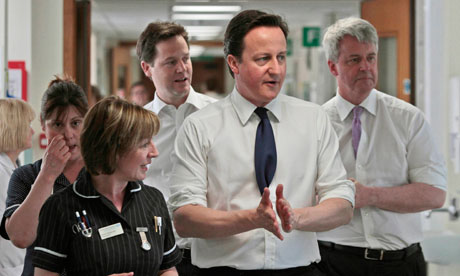
Is there a perfect example of the "big society" already in existence? The prime minister wants this to be his legacy. As a nation, we are so fortunate to have a perfect working example in every community in Britain – end-of-life care. I would encourage David Cameron to invest in and celebrate this great example of a model for government and society.
I am the chief executive of Marie Curie Cancer Care, the only national charity that provides nursing care in people's homes when they are dying, working in close partnership with district nurses, hospitals, GP surgeries, and the many wonderful independent hospices. I know how a little charitable money, mixed with good partnership with the NHS locally and supported by dedicated volunteers can make a huge difference to people's lives.
Last winter, I was asked by the health secretary, Andrew Lansley, to lead an independent review with Sir Alan Craft into the funding of end-of-life care for children and adults. A daunting task but, through months of evidence gathering all over England, Alan and I have heard at first hand how when state and society come together in partnership, so much can be achieved for patients and families and precious funds used more efficiently in the NHS.
The prime minister has asked for a pause in the passage of the health white paper so that he can listen and learn. Most are running around criticising, so here are my constructive suggestions for him and Lansley which, if incorporated, will lead to better care for patients and families.

No comments:
Post a Comment